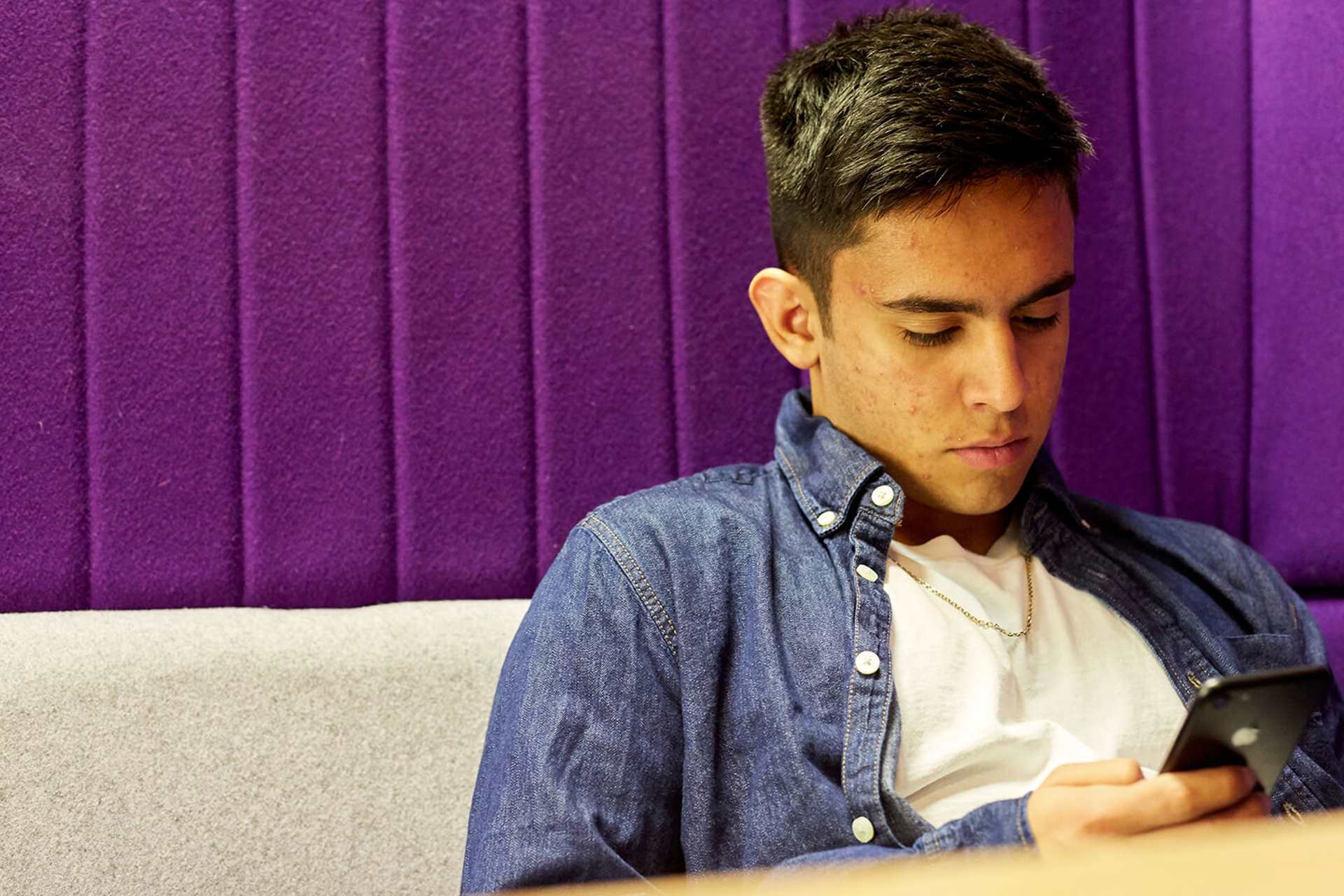Topics mentioned: autism and mental health, friends
About: Polly explains her journey to a diagnosis of autism and shares tips for how to look after your mental health at school if you are autistic.
School can be a challenging place to manage for most people, and when you’re autistic it can be even harder. Growing up I always felt different, like an outsider; I didn’t understand imaginary games, I would get so confused when someone would tell me to do one thing but expect something entirely different, and the fire alarm would physically hurt and make my arms prickle.
In secondary school this got worse - everywhere was so big and noisy, friendships got more confusing and people started dating. I loved the routine of school, and the learning, but I couldn’t manage everything else. In Year 8, I would hide in the history cupboard because it was quiet, small and dark - in my mind, safe.
In Year 8, I would hide in the history cupboard because it was quiet, small and dark - in my mind, safe.
When Covid hit, the routine of school went, and my home life didn’t have much structure. As a result, my mental health plummeted. It was during this time that I was diagnosed with autism. My first reaction was “but I can talk” - my perception of autism was completely wrong having been influenced by the mainstream media. As I learnt about autism in teenage girls, things slowly started to make sense; my autism diagnosis meant that I could communicate my needs and learn how to look after myself better.
Tips for coping at school if you're autistic
These tips have helped me, but every autistic person is different, so do what works for you.
- Headphones - Like many autistic people I struggle with loud noises, so I wear noise-cancelling headphones when studying, walking around or during loud classes.
- Wearing comfortable socks - Being comfy means I can focus better.
- Food and mood - I make sure to always have some of my "safe snacks" that I can always eat, such as breakfast bars or fruit bars.
Decompressing is giving yourself time to relax and unwind during the school day to help you manage better, feel more energised and avoid an autistic meltdown (for me these feel like I’m an erupting volcano) or shutdown (for me this is when I can’t talk and am extra sensory sensitive).
- Colouring in - This is good because it’s engaging but also calming. In school my teachers have lots of colouring books and I have a colouring break when things are overwhelming.
- Safe space - This is somewhere that you feel comfortable. Most schools have a sensory room or a quiet room.
- Engaging in your interests - Autistic people often have strong interests that they can find calming. For example I love Dr. Who, so every day on the way home I watch an episode on the bus.
Friendships can be extra challenging for autistic people because part of autism is having a different communication style and taking things literally.
Questions I ask myself to help keep my friendships healthy include:
- Do I feel energised and confident being with this person?
- Do I look forward to seeing this person?
- Are we both making time for each other?
This helps me prioritise who I want to spend my time with. It’s a myth that autism equals no empathy - in fact we have so much we don’t know how to express it!
It’s a myth that autism equals no empathy - in fact we have so much we don’t know how to express it!
I’m very lucky to have a wonderful group of friends who understand me and my autism; they always take the time to understand me and explain what’s going on if I don’t understand them. It wasn’t always this way. When I was in primary and secondary school, I found it really difficult to make and maintain healthy friendships. But I found that as soon as I started being myself, I made solid, trusting friendships.
Planning ahead is super important when you are autistic, as we thrive off routine. I’ve found it helpful to have set things that I can do every day – even if other plans have had to change. For example:
- a cup of tea and a snack after school
- a daily walk
- walking the same route to my form room each morning
Talk to your school about what accommodations they have - you may be surprised with what they can offer, for example:
- access to a sensory space
- support during exams
- mentoring
- referrals for autism specialist support
- financial advice
- you may qualify for an Education, Health and Care Plan (EHCP), which is a legally binding document stating the support you need to access education.
If you have to leave education, it’s not the end of the world. There are different routes into education and a multitude of opportunities in the job world. For example, a normal A-level programme is two years, but I am doing mine over three years to make it more manageable.
Autism isn’t a barrier and there are so many tips and tricks to help make your school days accessible.
When I was in primary and secondary school, I found it really difficult to make and maintain healthy friendships. But I found that as soon as I started being myself, I made solid, trusting friendships.
More information and advice
We have tips and advice to help you find the support you need. Take a look at our guides.
Where to get help
However you're feeling, there are people who can help you if you are struggling. Here are some services that can support you.
-
Childline
If you’re under 19 you can confidentially call, chat online or email about any problem big or small.
Sign up for a free Childline locker (real name or email address not needed) to use their free 1-2-1 counsellor chat and email support service.
Can provide a BSL interpreter if you are deaf or hearing-impaired.
Hosts online message boards where you can share your experiences, have fun and get support from other young people in similar situations.
- Opening times:
- 24/7






